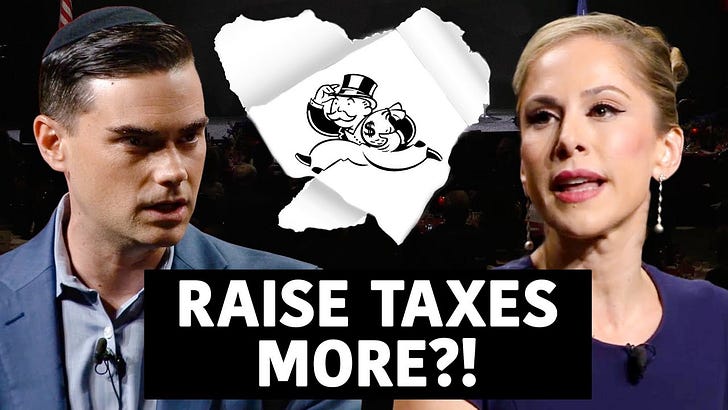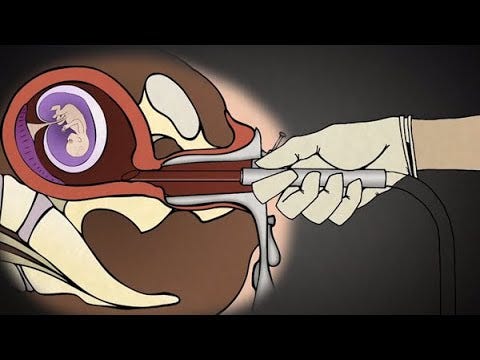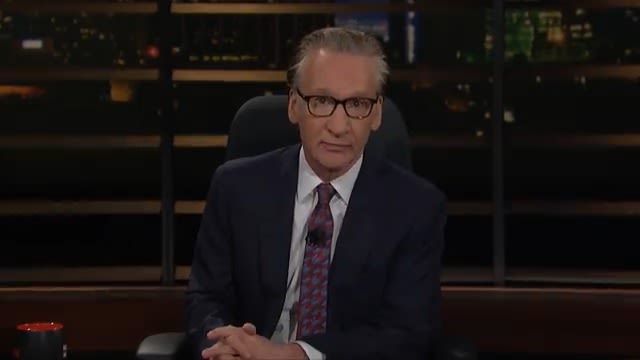The arguments made in this clip are some that have stuck with me since I first watched this video several months ago. And since the Tax Man just finished screwing most of us, I figured it was an appropriate topic for discussion. There are a few huge takeaways from this video, but I want to focus on this idea of universal child care.
If you’re completely unfamiliar with the people in this debate, here’s a quick summary: Ana Kasparian is a liberal political commentator on a show called The Young Turks and Ben Shapiro is a conservative political commentator and co-founder of a company called The Daily Wire. The Young Turks was actually one of the first political talk shows I was ever exposed to - and, being a young, first-year college student at the time, I kind of vibed with their points of view.
Watching this debate now, though, is both nostalgic and embarrassing, like looking at old photos of yourself doing weird shit. I mean, props to Ana for actually taking the time to debate Ben Shapiro, who is notoriously one of the fiercest debaters in the game. And props to her for focusing on communicating her ideas rather than attacking her opponent. You don’t see enough civility in debates nowadays.
It’s just a shame that Ana’s argument is almost entirely untenable.
Here it is, very neatly summed up for your convenience:
Other countries that tax their citizens at a higher rate than the U.S. receive what Ana claims to be “quality” child care.
In America, however, women are leaving the workforce because they cannot afford the cost.
This hemorrhaging of workers from the workforce has led to a labor shortage that we are currently dealing with (for context, this debate occurred in October 2021).
In Ana’s perfect America, women (and I’m assuming parents in general?) should feel more comfortable going to work, so she would have taxes increased to be able to implement a universal child care system.
Universal child care, to Ana, would alleviate both the current labor shortage and the costly burden that is child care.
If you’ve done your homework and watched the video above, then you’ll know I haven’t made this up. If you think I have done a poor job of gauging Ana’s position, comment below. Let’s talk it out. Otherwise, let’s continue.
For a full disclaimer: I don’t currently have children, so I have no idea how much of a financial burden child care actually is. I’m just tired of the lazy counter arguments that go: well, you’re not even an epidemiologist/expert/scientist/teacher/parent/woman! You don’t even get a say on this matter because you don’t even know what you’re talking about!
If this is were the extremely low bar that we had for engaging in arguments, we’d be devolving as a society. Also, it seems like the only sorts of arguments us laypeople would be “expert” enough to engage in would be about Tik Tok dances, selfie filters and video game hacks.
So, regardless of never having experienced this hardship myself, I do have the capacity to understand that parents shell out way too much money for child care.
That said, I still find Ana’s solution to be extremely weak and just so extra - and here’s several reasons why.
#1:
At one point, Ana explains that universal child care/pre-k would free up time so that “mothers can go to work if they want.” I’m willing to give her the benefit of the doubt by assuming she misspoke there at the end, because the whole concept of “if they want to” gets us into some pretty deep trouble.
If a mother is using a government subsidized program to send her child off to be looked after by someone else and is not using her free time to join the workforce despite the increase of taxes being implemented specifically for that purpose, then here’s what’s happening:
other people are literally paying for her free ride;
and, if she is not working, her free ride extends beyond just child care - her entire life is now dependent on government assistance (which, as everyone should know by now, is nothing more than other people’s hard-earned money redistributed).
In the end, Ana’s attempt to solve the labor shortage is not successful.
Again, perhaps Ana misspoke and she did not mean it this way. At the same time, though, it doesn’t take a grand imagination to understand that this scenario is not entirely bonkers. People abuse the current welfare systems that are already in place - so what would stop them from abusing this one, too?
#2:
Conversely, what about the childless taxpayers who would inevitably be paying - being forced to pay, really - for a service they don’t use?
I understand that the point of spreading the cost among taxpayers does two things: 1) it ultimately makes it cheaper for the people who need the service, though they will still be paying just in a process that has extra steps and 2) it gives children a better shot at being cared for, especially for lower income folks.
But how is this fair?
I can predict that one might argue, well, this already happens. Our taxes are already being pooled into the welfare system. All I can really say about that is I don’t like that either. Just because something is the way it currently is does not justify its existence. After all, you wouldn’t tell your friend that she should be okay with her husband beating her today because he already beats her everyday.
Another counter argument I can foresee is something like, well, maybe you don’t have children now, but the service will be available to you when you do. I’m sure you’ll be grateful for it when you need it.
#3:
And we’ve now arrived at issue number three, which is precisely the reason why I doubt I’d be grateful for any sort of government assistance:
Very simply put - the government does more to hurt than to help.
To make my point, let’s use an example that Ana herself used during the debate regarding the unprecedented un-affordability of college. This is such a widely known topic that I don’t even think I need to exhaust myself in explaining it. But because graphs are fun, let’s look at one concerning the cost of college tuition:
Clearly, college has always cost something. But, as this graph clearly shows, the price of college tuition has gotten out of control in the past 50 years. The timeline on the bottom is what I’d like to highlight and ask: why has this increase gone up so much since the late 60s?
Curiously enough, the Higher Education Act was passed in 1965. This Great Society era legislation guaranteed federal student loans to basically anyone applying for one with the intention of reducing the barriers for entry.
Of course, correlation does not equal causation. But, when a college knows that its students are guaranteed money to enter college, why wouldn’t they raise their prices?
On the other hand, if a college knows that its students must either obtain a personal loan (which is difficult to get when you’re 18 years old, have little to no job experience, and little to no credit history) or pay their way through college with some low-paying part time job, how could they charge a tuition rate that most prospective college students could never afford?
If you’re terrible at math, abstract concepts, and following a runaway train of thought like I am, then imagine this scenario: there’s a young child who wants to buy a candy bar from a convenience store. He puts the candy on the counter and asks the owner, “How much do I owe you mister?” The owner responds, “Well, how much you got?” Naive as they come, the kid pulls out all of the money from his pocket and puts it on the counter. Perhaps it amounts to one dollar. Perhaps it amounts to five dollars. In either case, the owner is out to turn a profit. He’s got lights to keep on, employees to pay, his own family to feed, etc. So whether the kid drops a one dollar bill or a five dollar bill on the counter, the owner is gonna pull a fast one on this kid and take all of his money. And if enough kids patron his shop and just keep paying “however much they got” for candy bars, the owner’s just gonna keep taking it. In little time, a damned Kit Kat is gonna be unaffordable - especially if the kids keep showing up with more money than they originally needed.
So yeah, the government guaranteeing college loans may have paved the otherwise obstacle-ridden road to college; but, based on the graph above and on the millions of people struggling to pay back their debts, it appears that we now have a problem that is (arguably) more severe.
#4:
And, while I’m on the topic of “ways in which the government does more to hurt than to help,” I will put Ana’s taxpayer-funded child care system under one very simple stress test: what happens when the child care workers demand a raise?
Say hello to issue number four.
Lefties, a.k.a. those in Ana’s camp, are all about the “living wage” messaging. If the child care workers in these hypothetical government-subsidized facilities start out making the crowd-favorite $15/hr, will they be satisfied at that rate for, say, the next 3-5 years?
My honest guess is no, they will not be satisfied and they’ll probably end up going on strike nationwide (thus leaving us with the same problem that we began with, though on a likely more extreme scale) until Congress agrees to increase taxes across the board to allow for their raises.
Or, maybe it’s not so dramatic. Maybe Congress just passes a wage increase - therefore a tax increase - for the child care workers just because (maybe it feels good?) and you’re stuck literally paying for their decision.
Either way, you’re fucked if (and when) the child care workers demand more money. Additionally, there are just too many ways for Ana’s suggested system to fail, or for people to take advantage of it, or for good, law-abiding citizens to get drained just that much more by the governmental leech that refuses to unlatch its teeth from our wallets.
And despite all of the holes I have already pointed out in Ana’s argument, the main reason I disagree with her is because it makes the assumption that government: 1) can fix our problems, 2) should fix our problems and 3) knows how to fix our problems better than we can ourselves.
When will we realize that the only reason a government would want to “provide” a service to its constituents is in order to guarantee its existence and to expand it’s reach over our lives? All these feel-good notions about “helping people” and what not are just shady sells pitches, not genuine objectives. And some people - like Ana Kasparian and Aleyah from 2015 - are naive enough to believe it.
It’s never too late to wise up to the leftist trap, and this idea of “universal child care” is one of them. It completely ignores the studies that show children develop behavioral problems in the constant care and custody of strangers. In fact, it argues that strangers should be the ones to care for your children so that way you and your spouse can fulfill your duties like the good, obedient worker bees that you are just to end up with paychecks that have been taxed to hell because that’s somehow a fair system. And you have to do that for years because the government always has its hands in your back pocket and, for some reason, we decided it was a good idea to let them determine how our money should be spent. And at some point your children grow up, potentially with severe behavioral problems, and you realize that you never raised your children at all, that the government had them in their clutches since infancy. And they’ll grow up thinking that that’s just how life is: you have kids and then send them off to be cared for by the government so that way you can go off and make money at some potentially meaningless job, the financial fruits of which are then siphoned by the Tax Man himself and deposited into budgets for bureacrats’ salaries and welfare services that you don’t remember asking or voting for, but are apparently supposed to be thankful to your government for providing.
I don’t know about y’all, but this is a really fucking solid way for the government to guarantee its relevancy and existence generations into the future.
So, yeah. Ana’s argument sucks.














Share this post